Birthday boy! Prince William at 40 – is it time to skip a generation in our royal succession?
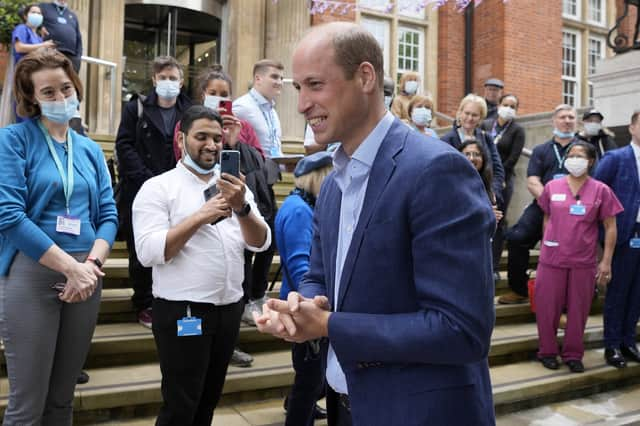

A king in waiting
Milestone birthday is marked by £5 portrait, first time second in line to throne Duke of Cambridge appears alone on Royal Mint coin, but what does future hold?
The occasion of Prince William’s fortieth birthday coincides with an era of uncertainty and change for the monarchy.
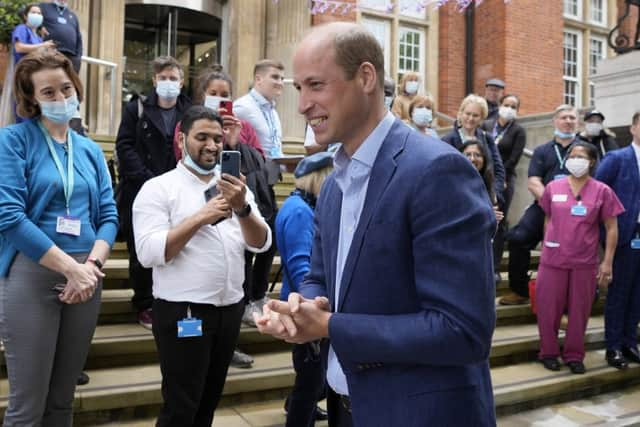

Advertisement
Hide AdAdvertisement
Hide AdSteve Cain examines why some feel it might be best if the line of succession to the throne skipped a generation.
The birth of Prince William Arthur Philip Louis at 9.30pm on June 21 1982 was heralded by a 41 gun salute both in Hyde Park and the Tower of London, ordered by the Queen.
As the son of The Prince and Princess of Wales, the baby boy immediately became second in line to the throne.
Security
The Windsor dynasty seemed secure.
As William, Duke of Cambridge this month marks his fortieth birthday, he is the second most popular member of the royal family after the Queen with an approval rating of 66 per cent.
Advertisement
Hide AdAdvertisement
Hide AdHis wife Catherine, Duchess of Cambridge ranks third with 65 per cent.
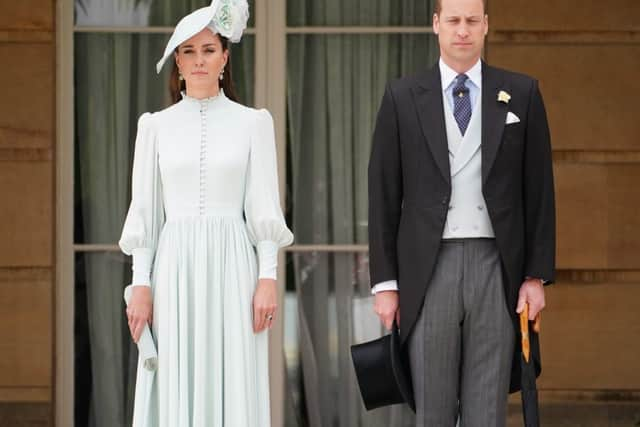

Undoubtedly, the Duke and Duchess of Cambridge have catapulted the royal family into the 21st century with their fresh outlook and stylish attainability, which has been interspersed with enough regal formality to maintain the idealised mystery of the crown.
It’s certain that the couple have contributed to the popularity of the royal family, with 62 per cent of the public in favour of retaining the monarchy.
However, the popularity of the Duke and Duchess of Cambridge is in stark contrast to that of William’s father and step-mother, the Prince of Wales and Camilla, Duchess of Cornwall.
Advertisement
Hide AdAdvertisement
Hide AdCharles’ approval rating hovers at 45 per cent while Camilla only musters 34 per cent in the same poll by YouGov.
Indeed, a survey by Deltapoll found that 47 per cent of Brits would rather the crown skipped Prince Charles and went straight to Prince William when the Queen’s reign comes to an end.
So, what is at the root of Charles’ mediocre poll rating?
And, what would be the benefits of stepping aside in favour of William?
Charles’ Marital Strife
For the majority of the past quarter of a century, Charles has desperately tried to recover from the damage caused to his reputation by his troubled marriage to Princess Diana.
Advertisement
Hide AdAdvertisement
Hide AdIn 1991, when the couple were still trying to maintain the facade of a happy marriage, 82 per cent of the public felt that Charles would make a good King.
However, within a five-year period – during which time both parties had admitted to adultery, become legally separated and subsequently divorced – that figure had halved to only 41 per cent.
The death of Diana, in 1997, caused further significant damage to Charles’ image.
Although many have come to accept his marriage to his former mistress, Camilla, the shadow of Diana, and his perceived ill-treatment of her, continues to cast over him.
Advertisement
Hide AdAdvertisement
Hide AdWilliam, on the other hand, has a happy and successful marriage to Kate and, with their three children, they present exactly the right kind of image – a couple who take pleasure in each other’s successes and work instinctively as a team, while raising three children with the skills to find happiness and contentment in serving in an institution bigger than themselves.
Avoiding the “Queen Camilla” controversy
In a message marking the seventieth anniversary of her reign, the Queen said: “When, in the fullness of time, my son Charles becomes King, it is my sincere wish that Camilla will be known as Queen Consort.”
Despite the overwhelming affection for the monarch, according to a YouGov poll, only 14 per cent of the public supported the Queen’s decision, suggesting that many still remember Camilla as Charles’ mistress and the “third person” in his marriage to Diana.
The same poll revealed that 41 per cent would prefer it if Camilla were to take on the title of Princess Consort, while 26 per cent said that she should have no additional title at all.
Advertisement
Hide AdAdvertisement
Hide AdIf William were to leapfrog Charles to the throne, the whole controversy surrounding this matter would be avoided altogether.
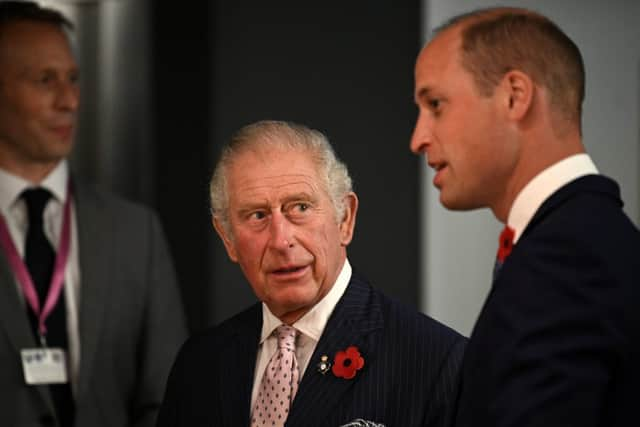

Retaining Relevance in Modern Britain
While there is no doubt that the Queen holds the affection, loyalty and respect of the vast majority of her subjects, it cannot be ignored that the 96-year-old monarch has considerably scaled back on her duties as a result of “episodic mobility issues.”
Thus, we are experiencing a form of unofficial “soft Regency” with Prince Charles taking on a greater workload.
However, the prince himself is now 73-years-old and, when the time comes, he will be the oldest person to inherit the throne (the current record holder being William IV, who was 64-years-old when he became King in 1830).
Advertisement
Hide AdAdvertisement
Hide AdMany feel that the passing of the crown from one elderly monarch (the Queen) to another (Charles) makes the institution seem archaic and out of touch with modern times. In order for the monarchy to survive, it is essential that it retains its relevance and the support of the younger generations, and having a younger monarch on the throne could be significant in achieving that.
Made to be king
At forty, William is a man who is comfortable in his own skin, knows his own mind and has a happy, settled family life. Indeed, he has “the stature and confidence of a King-in-waiting,” according to Dickie Arbiter, a former press secretary for the Queen.
Charles has, reportedly, referred to the role of being monarch as “such a difficult task” and revealed that William has been “part of the conversation” about the line of succession since he was eleven or twelve-years-old.
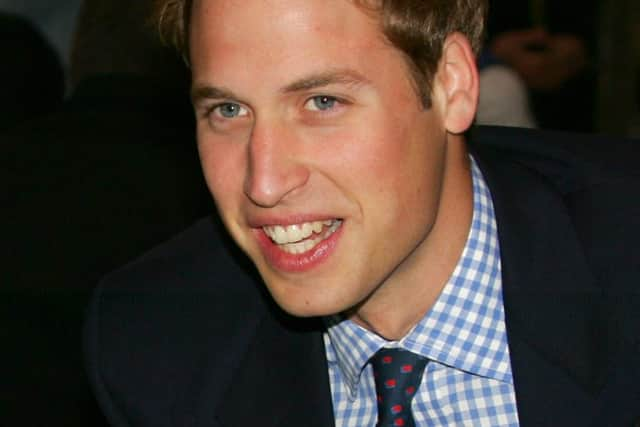

Some royal commentators believe that, although under common law, Prince Charles will automatically become King the moment the Queen dies, he might abdicate and pass the crown directly to William.
Advertisement
Hide AdAdvertisement
Hide AdThat would require legislation, as happened when Edward VIII abdicated in 1936. The line of succession is regulated by parliament and cannot be altered by the monarch of the day.
Others say they fully expect to see Charles take the throne. Richard Fitzwilliams believes that “over the next 20 years or so, he will age into some sort of beloved, iconic, nation’s grandfather-type figure” similar to his father, the late Prince Philip.
Whatever happens, it is important to acknowledge that it is Charles’ birthright to become King and, so far, he has spent 70 years as heir apparent.
When the time comes, it should be his decision as to whether he chooses to assume that role or not.